JCIE Publications | Toward Achieving the SDGs: The GFF’s Impact and Challenges and Its Significance for Japan
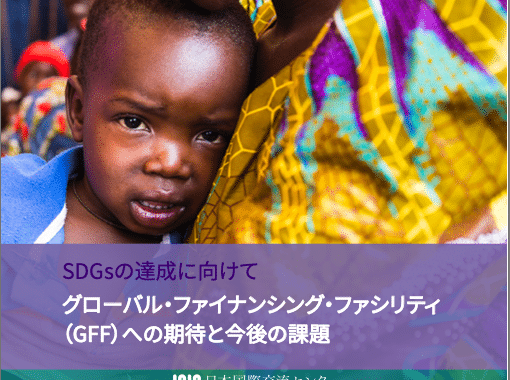
This report provides a comprehensive overview of the Global Financing Facility (GFF), established in 2015, based on 40 interviews with experts and stakeholders, with the aim of fostering understanding of the GFF in Japan.
Global Health Multistakeholder Dialogue Recommendations to the G7 2024
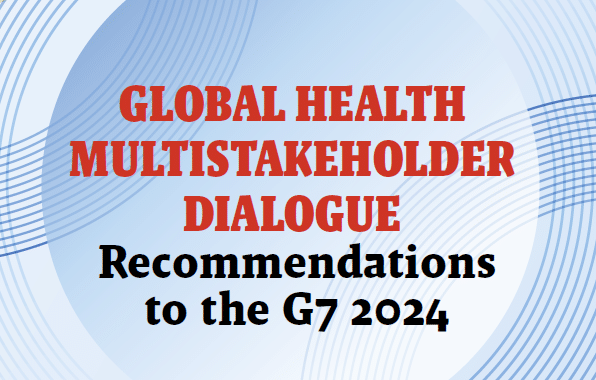
The culmination of an independent, nonstate actor-led Global Health Multistakeholder Dialogue, this report reviews the progress of the G7’s past commitments to global health issues including antimicrobial resistance and pandemic prevention, preparedness and response;
identifies remaining challenges to be addressed by the G7; and seeks to promote coordination and consensus on global health priorities among nonstate stakeholders while transitioning between the 2023 Japanese G7 and the 2024 Italian G7 presidencies.
Japan’s Foreign Policy and Global Health Diet Roundtable Series
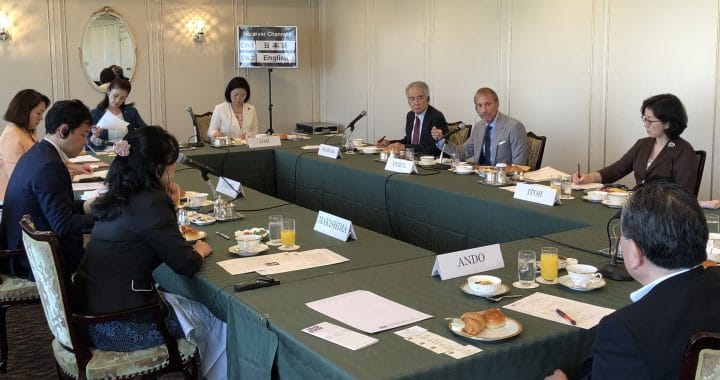
JCIE launched the “Global Health Diet Roundtable” series in 2018, followed by the “Japan’s Foreign Policy and Global Health Diet Roundtable” series in December 2023, as part of its Global Health and Human Security Program. The aim of these two series is to bring together a bipartisan assortment of Japanese parliamentarians and deepen their understanding of global health issues so that they can play a leadership role in the global health field.
JCIE Publication | Strengthening Human Capital Development for Clinical Trials to Prepare for Future Health Crises
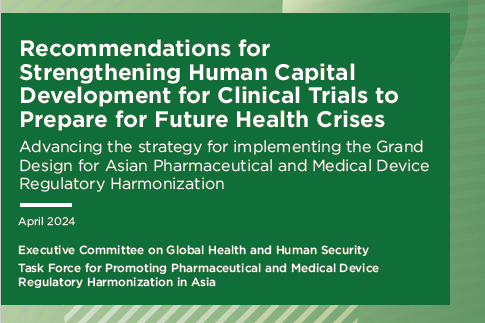
This report, available in both English and Japanese, outlines recommendations of the Task Force for Promoting Pharmaceutical and Medical Device Regulatory Harmonization in Asia the Task Force on ways to implement adequate measures, based on a comprehensive and consistent strategy, to develop the necessary research and research support personnel and to maintain and enhance academic research organization functions.
Regulatory Harmonization Task Force

In 2018, JCIE’s Executive Committee on Global Health and Human Security created a Task Force for Promoting Pharmaceutical and Medical Device Regulatory Harmonization in Asia. The group, comprised of 15 experts from industry, academia, and government, seeks to formulate recommendations on how Japan could improve access to pharmaceuticals and medical devices in Asia.
US-Japan Global Health Dialogue
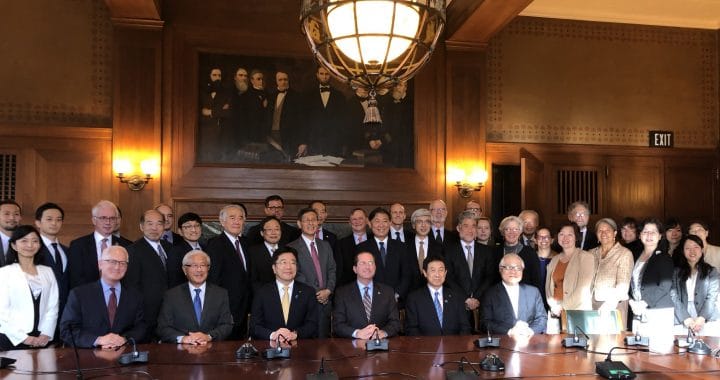
JCIE gathers policy experts and senior officials from various US and Japanese government agencies for a series of high-level dialogues to identify areas where the two countries can deepen cooperation on global health. Meetings have been co-organized with the UN Foundation, the Center for Strategic and International Studies (CSIS), and the National Academy of Medicine (NAM).
Bilateral Policy Dialogues

In the 1980s and 1990s, JCIE/Japan launched a number of annual policy dialogues that brought together leaders from various sectors to discuss the key domestic, bilateral, and international issues of the day.
FGFJ Infographic | Japan’s Long-Standing Commitment to the Global Fund
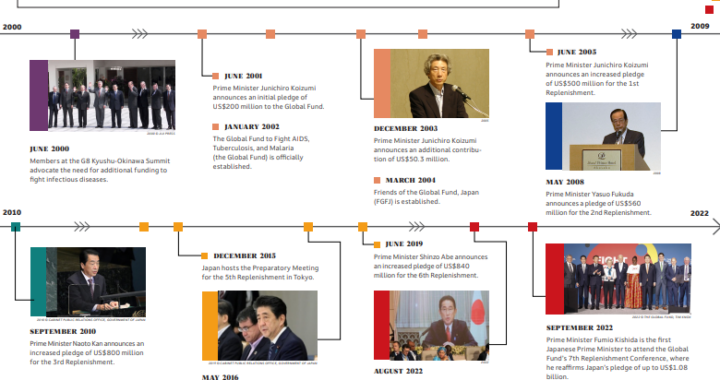
The Friends of the Global Fund, Japan (FGFJ) has launched a series of thematic sheets on cross-cutting areas in relation to the work and impact of the Global Fund.
Hiroshima G7 Global Health Task Force
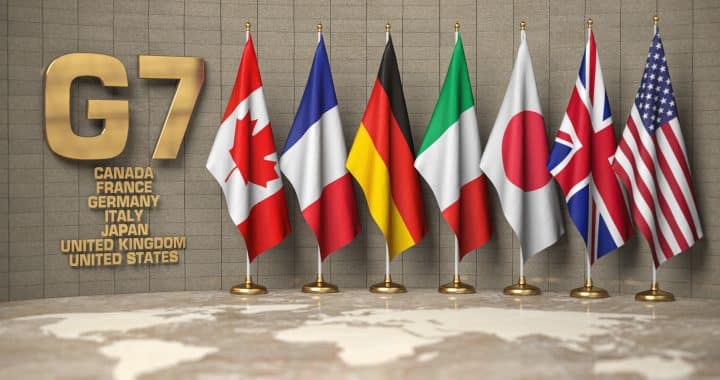
In 2023, Japan will host the G7 Summit in Hiroshima, the “City of Peace.” Ahead of the Summit, JCIE has established the Hiroshima G7 Global Health Task Force under the Executive Committee on Global Health and Human Security to make recommendations to the Japanese government on the G7 agenda and concrete measures to be promoted for global health in the context of the rapidly changing global health architecture.
G7 2016 Global Health Working Group

As host of the G7 Summit in 2016, Japan has the unique opportunity to set the tone for how global health priorities will be addressed in the summit agenda and help articulate how they will be formulated within the post-development framework. In order to capitalize on this opportunity and the growing momentum surrounding UHC as an increasingly important global priority, JCIE, in partnership with the University of Tokyo, has organized a Global Health Working Group (GHWG) to formulate policy proposals that will guide talks on global health.
